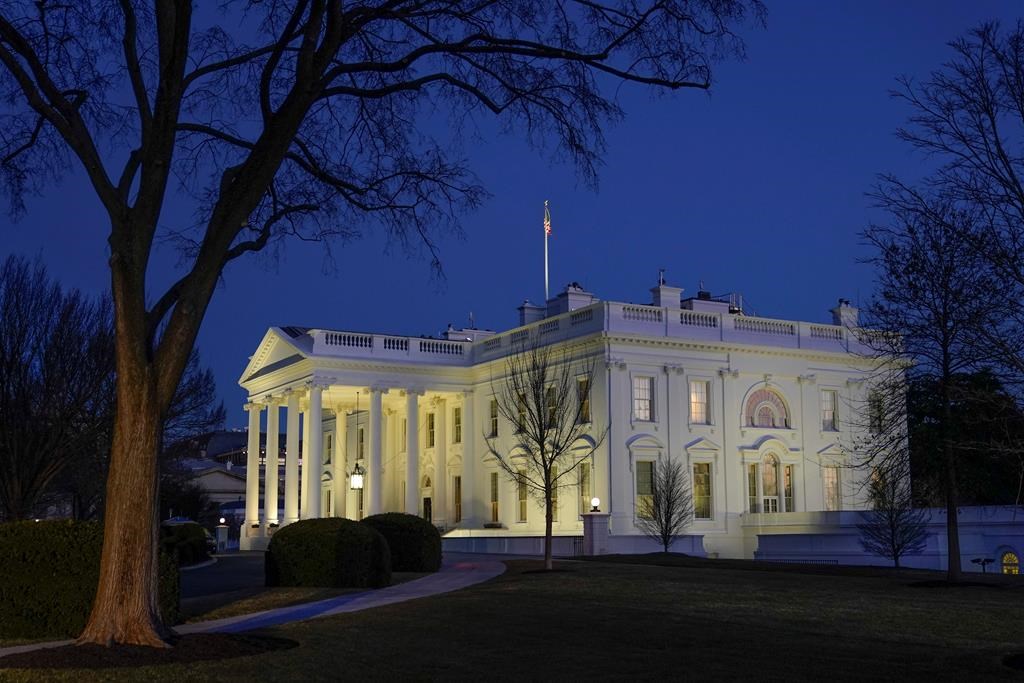President Joe Biden is set to issue an executive order to reverse a Pentagon policy that largely bars transgender individuals from joining the military, dumping a ban ordered by President Donald Trump in a tweet during his first year in office, a person briefed on the decision tells The Associated Press.
Biden has been widely expected to overturn the Trump policy in his early days in office. The White House could announce the move as early as Monday, according to the person briefed on the decision who spoke on the condition of anonymity to discuss the order.
The move to reverse the policy has the support of Biden’s newly confirmed defence secretary, retired Army Gen. Lloyd Austin, who spoke of the need to overturn it during his Senate confirmation hearing last week.
“I support the president’s plan or plan to overturn the ban,” Austin said. “If you’re fit and you’re qualified to serve and you can maintain the standards, you should be allowed to serve.”
The decision comes as Biden plans to turn his attention to equity issues that he believes continue to shadow nearly all aspects of American life. Ahead of his inauguration, Biden’s transition team circulated a memo from Ron Klain, now the White House chief of staff, that sketched out Biden’s plan to use his first full week as president “to advance equity and support communities of colour and other underserved communities.”
The move to overturn the transgender ban is also the latest example of Biden using executive authority in his first days as president to dismantle Trump’s legacy. His early actions include orders to overturn a Trump administration ban on travellers from several predominantly Muslim countries, stop construction of the wall at the U.S.-Mexico border, and launch an initiative to advance racial equity.
Biden is also scheduled to hold a ceremonial swearing-in ceremony on Monday at the White House for Austin, who became the nation’s first Black defence secretary.
It was unclear how quickly the Pentagon can put a new policy in effect, and whether it will take some time to work out details.
Until a few years ago service members could be discharged from the military for being transgender, but that changed during the Obama administration. In 2016, Defence Secretary Ash Carter announced that transgender people already serving in the military would be allowed to serve openly. And the military set July 1, 2017, as the date when transgender individuals would be allowed to enlist.
After Trump took office, however, his administration delayed the enlistment date and called for additional study to determine if allowing transgender individuals to serve would affect military readiness or effectiveness.
A few weeks later, Trump caught military leaders by surprise, tweeting that the government wouldn’t accept or allow transgender individuals to serve “in any capacity” in the military. “Our military must be focused on decisive and overwhelming victory and cannot be burdened with the tremendous medical costs and disruption that transgender in the military would entail,” he wrote.
It took nearly two years, but after a lengthy and complicated legal battle and additional reviews, the Defence Department in April 2019 approved the new policy that fell short of an all-out ban but barred transgender troops and military recruits from transitioning to another sex and required most individuals to serve in their birth gender.
Under that policy, currently serving transgender troops and anyone who had signed an enlistment contract before the effective date could continue with plans for hormone treatments and gender transition if they had been diagnosed with gender dysphoria.
But after that date, no one with gender dysphoria who was taking hormones or has transitioned to another gender was allowed to enlist. Troops that were already serving and were diagnosed with gender dysphoria were required to serve in their birth gender and were barred from taking hormones or getting transition surgery.
Under the Trump policy, a service member can be discharged based on a diagnosis of gender dysphoria if he or she is “unable or unwilling to adhere to all applicable standards, including the standards associated with his or her biological sex, or seeks transition to another gender.” And it said troops must be formally counselled and given a chance to change their decision before the discharge is finalized.
As of 2019, an estimated 14,700 troops on active duty and in the Reserves identify as transgender, but not all seek treatment. Since July 2016, more than 1,500 service members were diagnosed with gender dysphoria; as of Feb. 1, 2019, there were 1,071 currently serving. According to the Pentagon, the department spent about $8 million on transgender care between 2016 and 2019. The military’s annual health care budget tops $50 billion.
All four service chiefs told Congress in 2018 that they had seen no discipline, morale or unit readiness problems with transgender troops serving openly in the military. But they also acknowledged that some commanders were spending a lot of time with transgender individuals who were working through medical requirements and other transition issues.
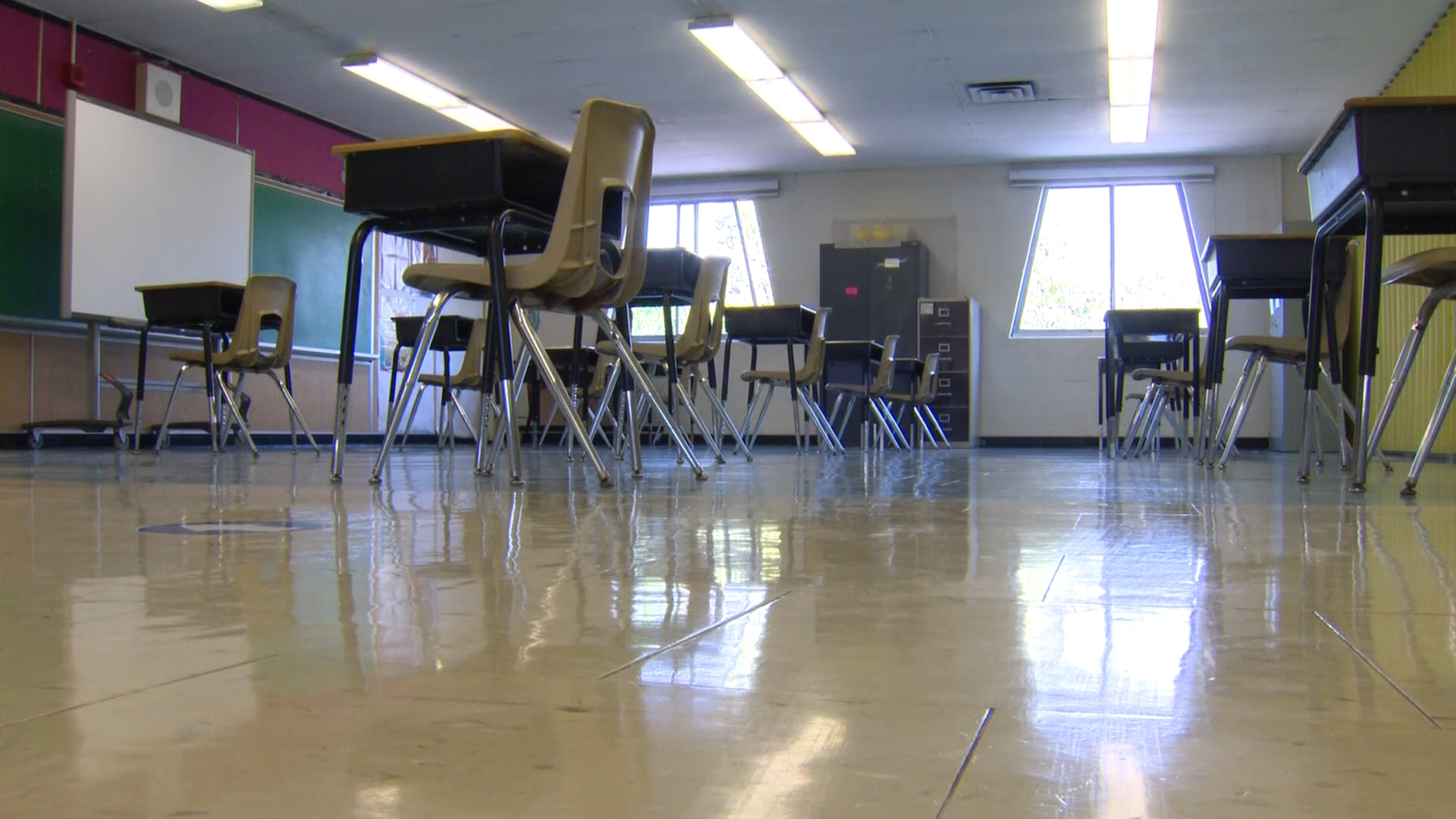
More than 100,000 students from regions outside the GTHA will be heading back into the classroom on Monday.
Education Minister Stephen Lecce announced last week that the province’s Chief Medical Officer had cleared the way for in-person learning to resume across seven public health units including Haliburton, Kawartha, Pine Ridge, and Peterborough Public Health.
In a statement released Sunday, Lecce reaffirmed that the province’s goal continues to be keeping students and staff safe. He added that “tougher layers of protection” have been introduced, such as targeted asymptomatic testing, enhanced screening, mandatory masking for students in Grades 1-3 and outdoors where physical distancing cannot be maintained.
The head of the Ontario Secondary School Teacher’s Federation is calling on the province to immediately pause in-person learning until appropriate safety measures are in place.
“The best kind of learning is in-person, face-to-face, with the support of education workers and teachers,” says Harvey Bischof. “But, as long as we don’t have a government that is going to really implement the safety measures that the medical experts are telling them they should then I think we need to hit pause for a bit.”
Bischof adds the province has rejected medical advice when it comes to smaller class sizes and better ventilation in schools.
The president of the Elementary Teachers Federation of Ontario (ETFO), Sam Hammond, has said it makes no sense to send students, teachers, and education workers back to school while the province is locked down.
On January 12, the Ford government announced that elementary and secondary students in Windsor-Essex, Peel, Toronto, York Region, and Hamilton would continue to learn remotely while it continues to closely monitor public health trends in those regions.
Elementary students and secondary students in the seven Northern Ontario public health units returned to in-person learning on January 11.

Experts at a leading children’s hospital say schools need to ramp up COVID-19 testing and masking in order to have all kids return to the classroom as soon as possible.
The guidance comes a day after Ontario said it would permit just seven public health units in southern Ontario resume in-person learning Monday, while students in hot-spot regions will continue with online learning until at least Feb. 10.
They join others in northern regions that returned to class last week, but areas including Toronto and Peel were deemed too-high risk to return to class.
The new guidelines, led by experts at Toronto’s Hospital for Sick Children, urge COVID-19 tests for all staff and students exposed to a confirmed case, while indoor masking be made mandatory for all those Grade 1 and up.
The report’s co-author Dr. Ronald Cohn says the current protocol is that testing is only required for those who display symptoms.
He also stresses the social and mental-health needs of young children, recommending kindergartners be cohorted so they can play and interact with their peers.
Cohn, president and CEO, SickKids, said schools closures should be “as time-limited as possible.”
“It is therefore imperative that bundled measures of infection prevention and control and a robust testing strategy are in place,” he said Thursday in a release.
The report also cautions against rapid tests using molecular or antigen tests because of their lower sensitivity and less effectiveness with asymptomatic cases.

After two decades of talking sports, Sportsnet personality Sid Seixeiro is leaving the Tim & Sid show to become the new co-host of Breakfast Television on Citytv.
Seixeiro will begin waking up audiences alongside current co-host Dina Pugliese and the rest of the BT family starting March 10.
“It’s been a dream to work 20 years in the sports industry, especially alongside Tim Micallef, and express my passion and love for sports on a daily basis,” said Seixeiro, whose final co-host appearance on the Tim & Sid show will come February 26.
“I’ve always been curious to explore other areas of the business and this was a unique opportunity that I couldn’t pass up.”
Over the next few weeks, Seixeiro will be seen on both Breakfast Television and Tim & Sid ahead of his full time arrival.
“We have had a unique partnership for almost 20 years, and while I will miss his candor, encyclopedic sports knowledge and often unbridled passion, I know this is the right next step for him,” said Micallef. “While it is one door closing, it is also the opening of a new window of opportunity for myself and the show.”
Micallef will continue to anchor the 5 p.m. to 7 p.m. ET timeslot on Sportsnet television and radio alongside a rotating panel of friends of the show until further details are announced.
WATCH: Seixeiro explains his reasons for leaving the Tim & Sid show
https://toronto.citynews.ca/2021/01/21/sid-seixeiro-to-join-citytvs-breakfast-television-as-new-co-host/
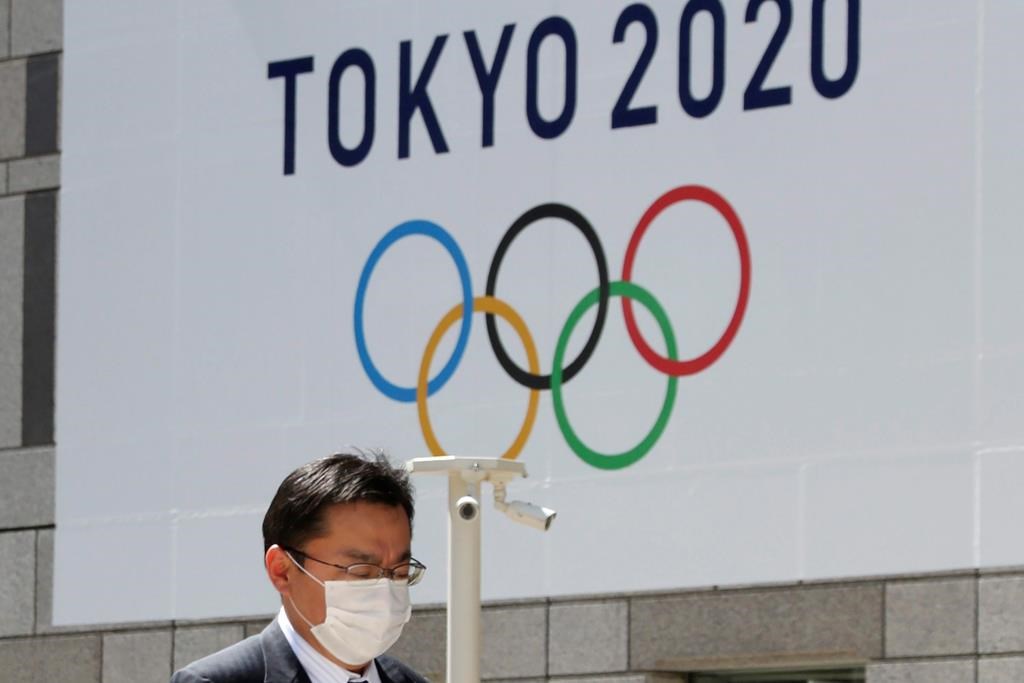
IOC President Thomas Bach and local organizers are pushing back against reports that the postponed Tokyo Olympics will be cancelled.
Now set to open July 23, the Tokyo Games were postponed 10 months ago at the outbreak of the coronavirus pandemic, and now the event appears threatened again.
The Times of London, citing unidentified government sources, reported that the games will have to be cancelled. It quoted an unidentified senior member of the ruling government coalition.
“No one wants to be the first to say so but the consensus is that it’s too difficult,” the source said. “Personally, I don’t think it’s going to happen.”
In a statement Friday, the local organizing committee did not address directly The Times story, but said the Olympics were going forward and had the support of Prime Minister Yoshihide Suga.
“All our delivery partners including the national government, the Tokyo Metropolitan Government, Tokyo 2020 Organizing Committee, the IOC and the IPC (International Paralympic Committee) are fully focused on hosting the games this summer,” the statement said.
“We hope that daily life can return to normal as soon as possible, and we will continue to make every effort to prepare for a safe and secure games.”
The Times of London said Japan hoped to land the 2032 Olympics. The IOC has already awarded the 2024 Olympics to Paris and the 2028 version to Los Angeles.
The idea of Tokyo waiting a decade seems unlikely, given the cost of maintaining venues, negotiating new leases, and so forth. Tokyo has already spent about $25 billion to organize these Olympics, most of which is public money.
Several reports of a cancellation began to surface this month when the Japanese government put Tokyo and other prefectures under a state of emergency order to counter a surge of rising COVID-19 cases.
“We have at this moment, no reason whatsoever to believe that the Olympic Games in Tokyo will not open on the 23rd of July in the Olympic stadium in Tokyo,” Bach told the Japanese news agency Kyodo on Thursday. He also said there is “no Plan B.”
Senior International Olympic Committee member Richard Pound said earlier in the week that the Olympics may be held largely without fans, making it a mostly television event.
The Switzerland-based IOC gets 73% of its income from selling broadcast rights and has seen its main revenue source stalled by the Olympic postponement. A largely TV-only event would suit the IOC better than a cancellation.
Unlike other sports businesses that offer hundreds of games, the IOC has only two main events to sell — the Summer and Winter Olympics.
Bach hinted that radical changes may be needed to pull off the Tokyo Olympics, which involve 11,000 athletes and tens of thousands of coaches, officials, judges, VIPS, media and broadcasters.
About 4,400 athletes will attend the Paralympics, which are set to open Aug. 24.
“You may not like it but sacrifices will be needed, “ Bach said. “This is why I’m saying, safety first, and no taboo in the discussion to ensure safety.”
Japan has reported fewer than 5,000 deaths from the coronavirus and has handled the virus better than most countries. But the surge is not tapering off in Tokyo, a sprawling metropolitan area of 35 million.
Public opinion in Japan has also turned against the games with 80% in several polls saying they should be postponed again or cancelled.
Bach said organizers were in a better position to hold the Olympics now than they were 10 months ago when the games were postponed.
“First of all, let me be clear that you cannot compare March 2021 with March 2020 because there is such great progress in science, medicine, vaccination and (virus) tests,” Bach told Kyodo. “All this was not available in March last year. Nobody knew yet how really to deal with the pandemic, and now we know much more.”
Japan is experiencing a slow roll out of vaccines. However, the IOC has said its measures against the virus will focus on testing, quarantines, social distancing and keeping athletes largely isolated.
It has encouraged athletes to be vaccinated but will not require it.
_
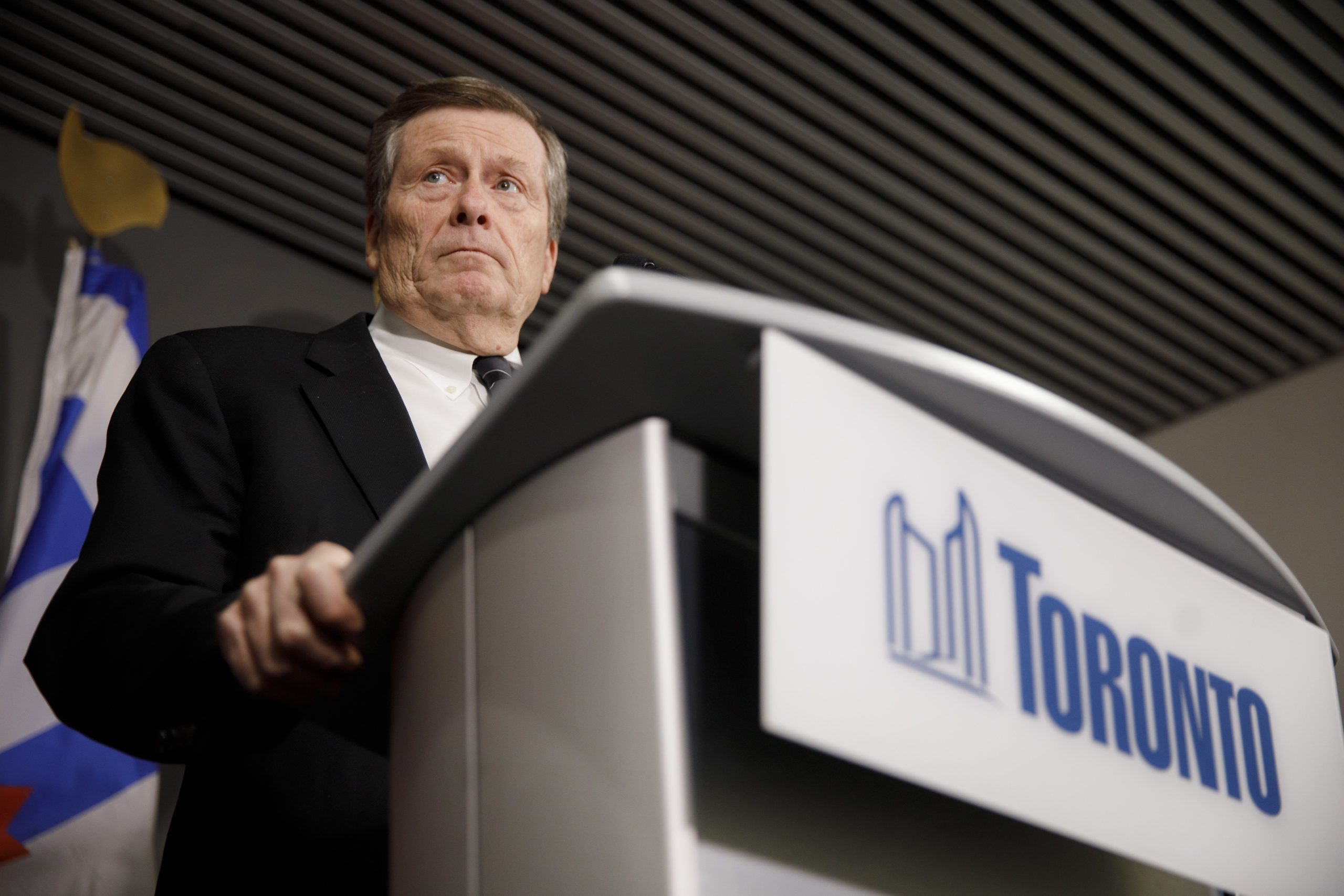
Toronto Mayor John Tory has joined a chorus of Canadian politicians in urging Pfizer-Biotech to produce more COVID-19 vaccine.
Tory followed Prime Minister Justin Trudeau and Ontario Premier Doug Ford, among others, in speaking directly to executives from the pharmaceutical multinational. Tory said he wanted to make a constructive case after the company said it would not be able to fulfil next week’s order to the federal government.
“The best way to go about these kinds of conversations is to make your case as a Canadian, which I did, and as the mayor of the largest city in the country, and to try to make Canada’s case,” Tory said.
Tory said he knows members of Pfizer’s management team from his previous career as a business executive, and that he reached out to them in concert with the federal government.
“I’m trying to help the country’s efforts to try to see if we can’t get more supply,” the mayor said. “I can’t tell you what results my intervention, or anybody else’s, will have.”
Toronto has had to shut down its two vaccination programs until the federal government provides more doses to the city’s public health unit.
An immunization clinic at the Metro Toronto Convention Centre closed after two days of inoculating front-line health care workers. The city also paused a pilot in shelters for people experiencing homelessness.
Dr. Eileen De Villa, Toronto’s chief medical officer, said everyone’s frustrated with the shipping delay, because the vaccine offers people hope.
“Having it slowed down and having the change in course is not what we wanted,” De Villa said. “But we expect there will be eventually vaccine coming available and we’ll do our very best.”
De Villa said there were 986 new cases of COVID-19 in Toronto on Thursday and 10 more deaths linked to the virus. The update included 102 cases from earlier in the week that had previously gone unreported because of a technical error.
Councillor Joe Cressy, chairman of the Toronto Board of Health, joined Tory and De Villa at the Thursday afternoon news conference. All three detailed the city’s ongoing efforts to support racialized communities that have been hit hardest by the pandemic.
Toronto, Ontario Health, hospitals, and community health providers have been working to improve access to testing in those neighbourhoods. Toronto reports nearly 271 testing clinics have been booked in more than 20 different city-owned facilities, with 89 more dates to come in January at 12 different sites.
Trudeau’s conversation with Pfizer CEO Albert Bourla on Thursday came the same day the company informed Canada delays to its shipments of COVID-19 vaccines are going to be even worse than previously thought.
Maj.-Gen. Dany Fortin, the military commander now overseeing the vaccine logistics for the Public Health Agency of Canada, said last week a factory expansion at Pfizer’s Belgium plant was going to slow production, cutting Canada’s deliveries over four weeks in half.
In exchange, Pfizer expects to be able to ship hundreds of millions more doses worldwide over the rest of 2021.
Tuesday, Fortin said Canada would receive 80 per cent of the previously expected doses this week, nothing at all next week, and about half the promised deliveries in the first two weeks of February.
Thursday, he said the doses delivered in the first week of February will only be 79,000, one one-fifth of what was once expected. Fortin doesn’t know yet what will come the week after, but overall, Canada’s doses over three weeks are going to be just one-third of what had been planned.
Fortin said some provinces may be hit even harder than others because of limits on the way the Pfizer doses can be split up for shipping. The vaccine is delicate and must be kept ultra frozen until shortly before injecting it. The company packs and ships specialized coolers, with GPS thermal trackers, directly to provincial vaccine sites.
Ontario Premier Doug Ford said earlier this week he doesn’t blame the federal government for the dose delays but wanted Trudeau to do more to push back about it.
“If I was in (Trudeau’s) shoes … I’d be on that phone call every single day. I’d be up that guy’s yin-yang so far with a firecracker he wouldn’t know what hit him,” he said of Pfizer’s executives.
Trudeau informed Ford and other premiers of the call with Bourla during a regular teleconference to discuss the COVID-19 pandemic. Until Thursday, all calls between the federal cabinet and Pfizer had been handled by Procurement Minister Anita Anand.
Ford also spoke to Pfizer Canada CEO Cole Pinnow Wednesday.
Trudeau didn’t suggest the call with Bourla made any difference to the delays, and noted Canada is not the only country affected.
Europe, which on the weekend thought its delayed doses would only be for one week after European Commission President Ursula von der Leyen spoke to Bourla, now seems poised to be affected longer. Italy is so angry it is threatening to sue the U.S.-based drugmaker for the delays.
Mexico said this week it is only getting half its expected shipment this week and nothing at all for the next three weeks. Saudi Arabia and Bahrain also reported delays getting doses. Pfizer Canada spokeswoman Christina Antoniou said more countries were affected but wouldn’t say which ones.
Fortin said Pfizer has promised to deliver four million doses to Canada by the end of March and that is not going to change with the delay. With the current known delivery schedule, the company will have to ship more than 3.1 million doses over 7 1/2 weeks to meet that commitment.
Deliveries from Moderna, the other company that has a COVID-19 vaccine approved for use in Canada, are not affected. Canada has received about 176,000 doses from Moderna to date, with deliveries arriving every three weeks.
Moderna has promised two million doses by the end of March.
Both vaccines require first doses and then boosters several weeks later for full effectiveness. Together Pfizer and Moderna intend to ship 20 million doses to Canada in the spring, and 46 million between July and September. With no other vaccines approved, that means Canada will get enough doses to vaccinate the entire population with two doses by the end of September.
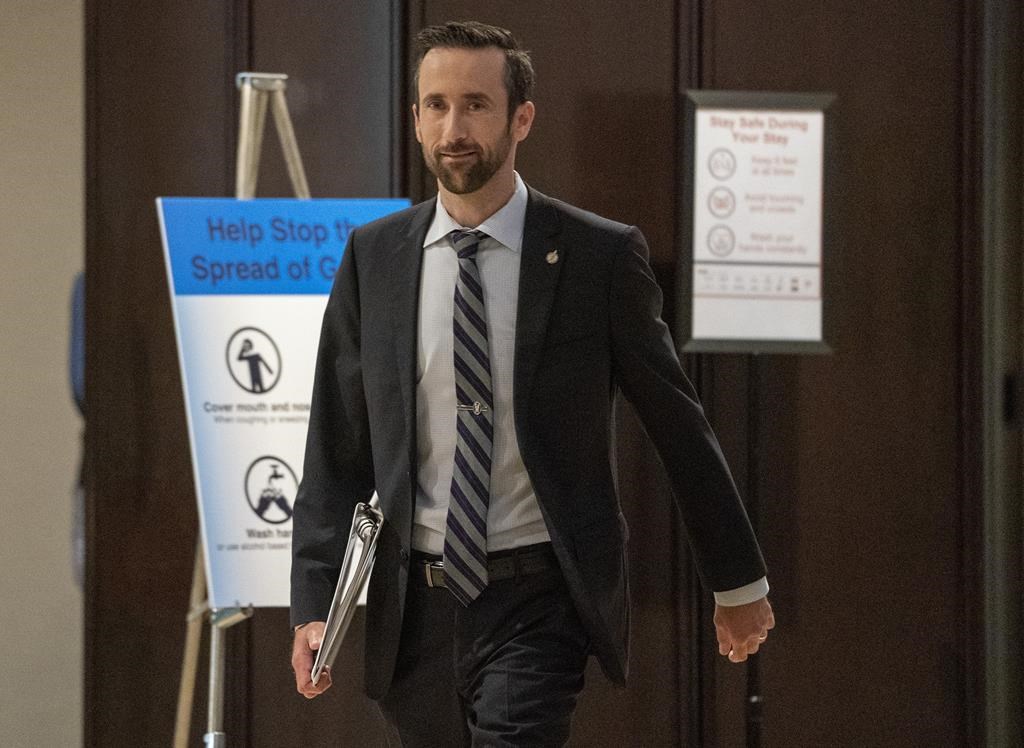
Controversial MP Derek Sloan was kicked out of the Conservative caucus Wednesday, a move party leader Erin O’Toole said was due to a “pattern of destructive behaviour” that had become a distraction.
O’Toole’s acknowledgment that Sloan’s dismissal was not solely over a donation he’d taken from a white nationalist came after hours of heated debate within caucus that saw MPs castigate both Sloan for his record and O’Toole for how he’d handled the issue.
Sloan said he will now sit as an Independent and will continue to fight for conservatives voices.
“No matter how ugly _ how undemocratic _ the events of the last two days have been, always remember that the Conservative Party of Canada is not the personal property of Erin O’Toole, nor is it the personal property of the cabal that surrounds him,” he wrote.
O’Toole had formally triggered the effort to boot Sloan after revelations Monday that Sloan accepted a donation last year from a known white nationalist, news that broke one day after O’Toole declared there’s no room in his party for far-right extremism or racism.
Sloan claimed he was not aware of the donation previously, and as soon as he learned of it, asked the party to return the money.
But Sloan’s extreme socially conservative views had been a thorn in the party’s side and there had been mounting pressure on O’Toole to kick him out.
During his 15 months as an MP, Sloan has faced accusations he’s racist, drawn condemnation for his views on LGBTQ rights and for his anti-abortion stance, all leading to periodic calls he be tossed from the party’s benches.
“I’ve worked well with many social conservatives in our party over the years. They are welcome in our party, but Derek Sloan’s behaviour is not,” wrote former Conservative cabinet minister John Baird on social media this week.
That O’Toole initially billed the decision to oust him as being based on the donation was a source of frustration for many MPs. Any one of them, in theory, could have accepted and overlooked a similar contribution as vetting the pedigree of each contributor would be impossible.
Several told O’Toole during the meeting he had to come clean about why Sloan was getting the boot, otherwise he was setting too high a bar for them all.
““The Conservative caucus voted to remove Derek Sloan not because of one specific event, but because of a pattern of destructive behaviour involving multiple incidents and disrespect towards the Conservative team for over a year,” O’Toole said in his statement after the meeting,
“These actions have been a consistent distraction from our efforts to grow the party and focus on the work we need to do. Events of the past week were simply the last straw and led to our caucus making the decision it did today.”
O’Toole won leadership of the party, however, partially on the strength of Sloan’s supporters, and he took pains Wednesday to try to assuage concerns the move was meant as a swipe at them.
“I did not vote to remove Derek Sloan from our caucus because he is a social conservative. We have members of Parliament of deep compassion and unmatched character, who like many Canadians, draw strength from their faith,” he said.
“The Conservative party is a big tent that is reflective of all Canadians.”
But the most recent knock against Sloan was his effort to mobilize supporters to participate in a Conservative policy convention in March.
The party is investigating whether his use of robocalls to get people to register for the convention runs afoul of telecommunications regulations. His use of the party’s membership list to encourage delegates to register also ruffled feathers and is under review and the party has said he’s been unco-operative in that process.
While socially conservative groups are traditionally quite active at Conservative conventions, their ranks swelled during the leadership race, given both Sloan’s and Leslyn Lewis’s campaigns explicitly targeted those constituencies.
With strong enough numbers, resolutions they want to advance have a better chance of passing, including one that would delete a policy pledging that a Conservative government will not regulate abortion.
That in turn would jeopardize O’Toole’s efforts to present the party as more centrist.
In his email Wednesday, Sloan urged his backers not to give up, a spirit echoed by the Campaign Life Coalition, which accused O’Toole of trying to deflate people’s enthusiasm.
“Don’t give O’Toole exactly what he wants,” the coalition’s Jack Fonseca wrote in the email.
“We are so close to winning at the convention that even if Derek gets expelled, we need to stay engaged in the convention to make the party more socially conservative in its policy declaration.”
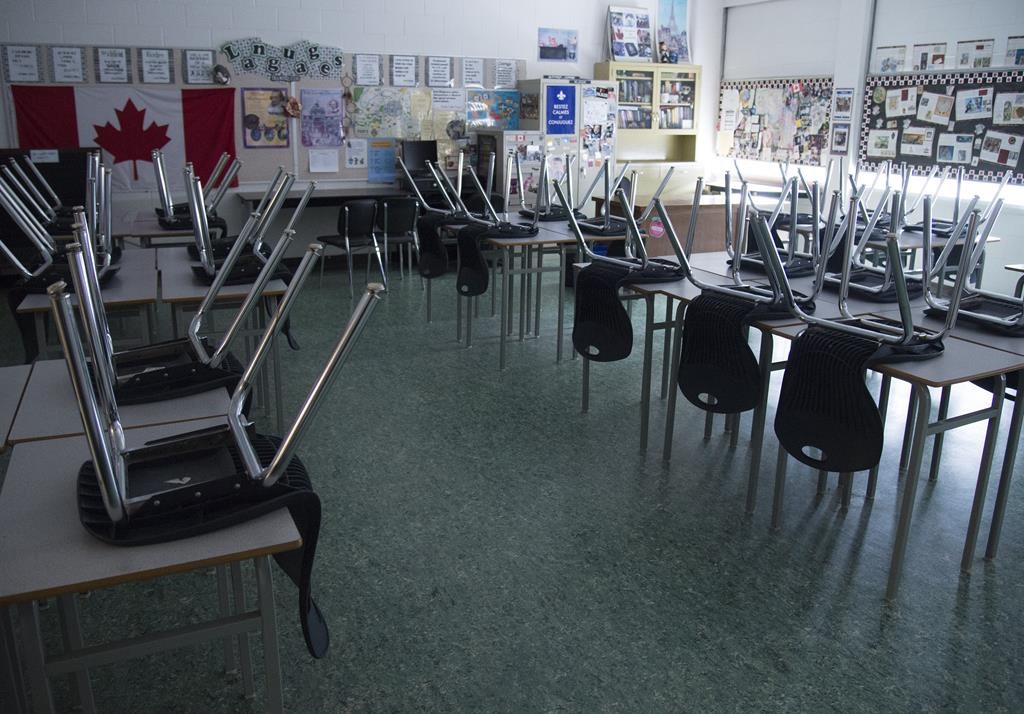
Schools in seven public health units in Ontario will open their doors next week for in-class learning, Minister of Education Stephen Lecce announced Wednesday.
In a release, Lecce said the re-openings scheduled for Monday, January 25, come on the advice of the province’s Chief Medical Officer of Health.
Over 100,000 students are expected back in class.
Schools in the following public health units will re-open Monday:
- Grey Bruce Health Unit
- Haliburton, Kawartha, Pine Ridge District Health Unit
- Hastings and Prince Edward Counties Health Unit
- Kingston, Frontenac and Lennox & Addington Health Unit
- Leeds, Grenville and Lanark District Health Unit
- Peterborough Public Health
- Renfrew County and District Health Unit
“Getting students back into class is our top priority,” Lecce said. “According to Ontario’s Chief Medical Officer of Health and leading medical and scientific experts, including the Hospital for Sick Children, Ontario’s schools are safe places for learning.”
“To ensure schools remain safe, the government is introducing additional measures including provincewide targeted asymptomatic testing, enhanced screening, mandatory masking for students in Grades 1-3 and outdoors where physical distancing cannot be maintained.”
The government says schools in all other southern Ontario public health units will continue remote learning.
In late December, the government announced that all schools would be closed to in-person learning for the first week of the winter term.
That closure was later extended to Jan. 25 for all schools in southern Ontario while students in northern Ontario returned to physical classrooms on Jan. 11.
The government then declared a state of emergency on Jan. 12 and extended online learning for schools in five hot spots until Feb. 10.
The Ministry of Education said it will continue to closely monitor public health trends in regions where schools remain closed in favour of remote learning.
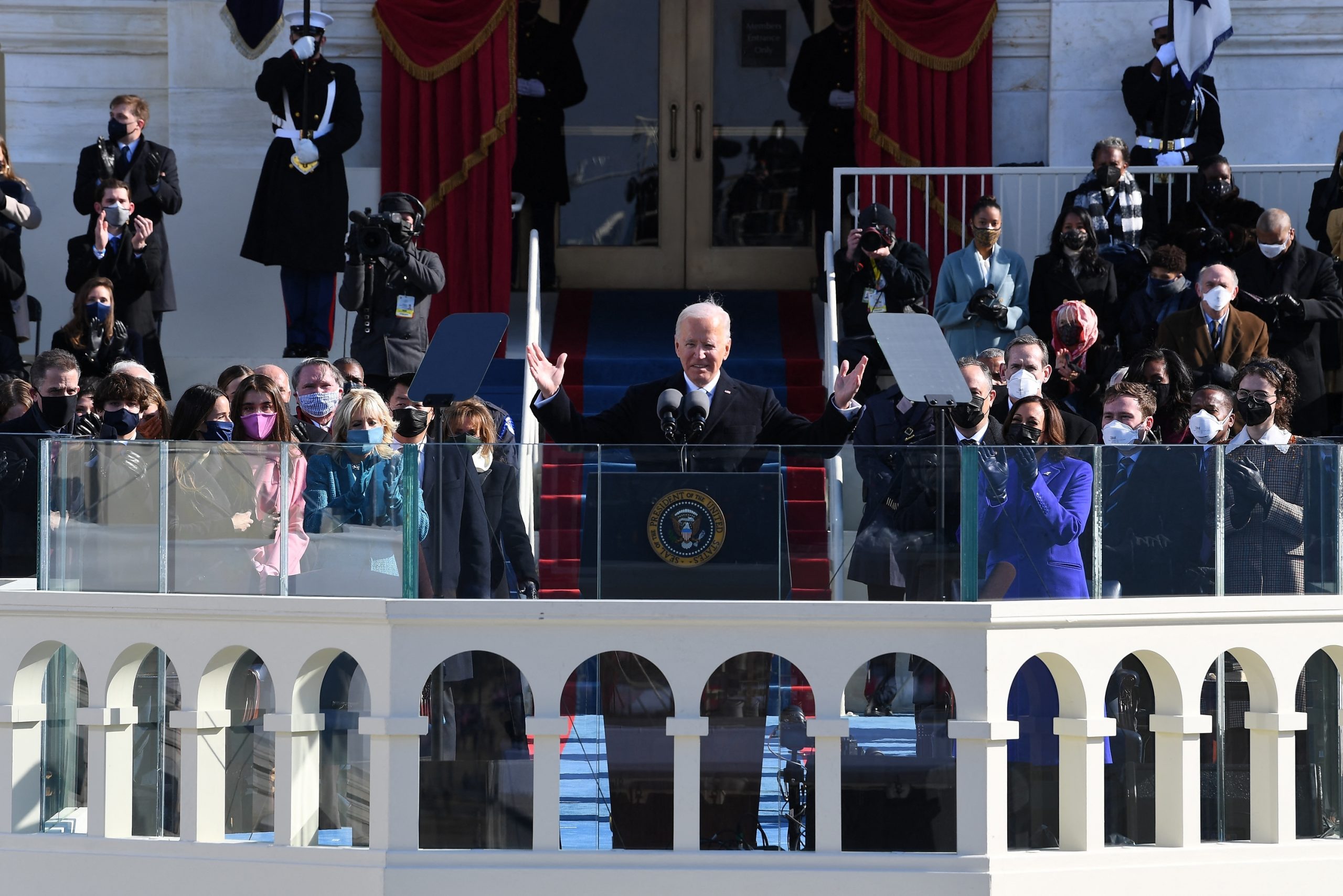
President Joe Biden moved swiftly to dismantle Donald Trump’s legacy on his first day in office, signing a series of executive actions that reverse course on immigration, climate change, racial equity and the handling of the coronavirus pandemic.
The new president signed the orders just hours after taking the oath of office at the Capitol, pivoting quickly from his pared-down inauguration ceremony to enacting his agenda. With the stroke of a pen, Biden ordered a halt to the construction of Trump’s U.S.-Mexico border wall, ended the ban on travel from some Muslim-majority countries, declared his intent to rejoin the Paris Climate Accord and the World Health Organization and revoked the approval of the Keystone XL oil pipeline, aides said.
Highlights of actions Biden is taking Wednesday:
The coronavirus pandemic
Mask requirement
Biden is requiring the use of masks and social distancing in all federal buildings, on federal lands and by federal employees and contractors. Consistently masking up is a practice that science has shown to be effective in preventing the spread of the coronavirus, particularly when social distancing is difficult to maintain.
He is challenging all Americans to wear a mask for the first 100 days of his administration. That’s a critical period, since communities will still be vulnerable to the virus even as the pace of vaccination increases in pursuit of Biden’s goal of 100 million shots in 100 days.
World Health Organization
Biden also is directing the government to rejoin the World Health Organization, which Donald Trump withdrew from earlier this year after accusing it of incompetence and bowing to Chinese pressure over the coronavirus.
Symbolizing Biden’s commitment to a more prominent global role, White House coronavirus coordinator Jeff Zients announced that Dr. Anthony Fauci will deliver a speech Thursday to the WHO as head of a U.S. delegation. Fauci, the government’s top infectious disease expert, will lay out how the administration intends to work with the WHO on reforms, supporting the coronavirus response and promoting global health and health security
Climate
Reviewing Trump rollbacks
Biden’s Day One plans also include a temporary moratorium on new Trump administration oil and gas leasing in the Arctic National Wildlife Refuge, moving to revoke a presidential permit for the Keystone XL oil and gas pipeline and reviewing a Trump administration freeze on vehicle mileage and emissions standards. Biden also is setting in motion an evaluation of another Trump move that cut boundaries and protections for some national monuments.
Agencies will be directed to consider impact of climate change on disadvantaged communities and on future generations from any regulatory action that affected fossil fuel emissions, a new requirement.
Paris climate accord
Biden will sign an executive order to rejoin the Paris climate accord, fulfilling a campaign pledge to get back into the global climate pact on Day One. Trump, a supporter of oil, gas and coal, had made a first priority of pulling out of global efforts to cut climate-damaging fossil fuel emissions.
It will take 30 days for the U.S. to officially be back in.
RELATED: Biden takes the helm as president: ‘Democracy has prevailed’
Immigration
Ending ban on Muslim travellers
Biden is ending what is variously known as the “travel ban” or the “Muslim ban,” one of the first acts of the Trump administration. Trump in January 2017 banned foreign nationals from seven mostly Muslim countries from entry into the country. After a lengthy court fight, a watered-down version of the rule was upheld by the Supreme Court in a 5-4 decision in 2018.
The new administration says it will improve the screening of visitors by strengthening information sharing with foreign governments and other measures.
Border wall
Biden is immediately ending the national emergency that Trump declared on the border in February 2018 to divert billions of dollars from the Defense Department to wall construction. He also is halting construction to review contracts and how wall money might be redirected.
Despite Trump’s repeated promises that Mexico would pay for the wall, U.S. Customs and Border Protection says Americans have committed $15 billion for more than 700 miles (1,120 kilometers). It is unclear how many miles are under contract and what penalties the government would have to pay for canceling them.
The Supreme Court has scheduled arguments Feb. 22 on the legality of Trump’s diverting Defense Department funds for counter-narcotics efforts and military construction projects to wall construction.
DACA
Biden will order his Cabinet to work to preserve the Deferred Action for Childhood Arrivals program, which has shielded hundreds of thousands of people who came to the country as young children from deportation since it was introduced in 2012.
Trump ordered an end to DACA in 2017, triggering a legal challenge that ended in June when the Supreme Court ruled that it should be kept in place because the Trump administration failed to follow federal rule-making guidelines in undoing it. But DACA is still facing legal challenges.
In his presidential proclamation, Biden is calling on Congress to adopt legislation that gives DACA recipients permanent legal status and a path to citizenship. There are currently about 700,000 people enrolled.
Deportations
Biden is revoking one of Trump’s first executive orders, which declared that all of the roughly 11 million people in the country illegally are considered priorities for deportation. The Department of Homeland Security will conduct a review of enforcement priorities. Biden’s campaign site says deportations will focus on national security and public safety threats.
The order says nothing about a 100-day moratorium on deportations that Biden promised during the campaign. Susan Rice, who is tapped to run the White House Domestic Policy Council, says any decision on moratoriums would come from Homeland Security.
Census
Biden is reversing a Trump plan to exclude people in the country illegally from being counted in the 2020 Census. The once-a-decade census is used to determine how many congressional seats and Electoral College votes each state gets, as well as the distribution of $1.5 trillion in federal spending each year.
Biden’s team says the new administration will ensure the Census Bureau has time to complete an accurate count for each state and that the apportionment is “fair and accurate.”
Legislation
Biden is also proposing legislation that would grant green cards and a path to citizenship to anyone in the United States before Jan. 1, 2021, an estimated 11 million people. Most would have to wait eight years for citizenship but people enrolled in the Deferred Action for Childhood Arrivals program for young immigrants and with Temporary Protective Status for fleeing strife-torn countries would only wait three years. Other provisions lessen the time that many people have to wait outside the United States for green cards, provide development aid to Central America and reduce the 1.2-million-case backlog in immigration courts.
RELATED: Full speech: President Joe Biden speaks at his inauguration
Student debt
Biden is asking the Education Department to extend a pause on federal student loan payments through at least Sept. 30, continuing a moratorium that began early in the pandemic but was set to expire at the end of January.
Borrowers, who owe a collective $1.5 trillion, would not be required to make payments on their federal student loans, their loans would not accrue any interest, and all debt collection activity would halt through September.
Congress paused student debt payments last March as part of a virus relief package, and the Trump administration extended it twice.
Biden’s order does not include the type of mass debt cancellation that some Democrats asked him to orchestrate through executive action. He has said that action should come from Congress.
Housing foreclosures
Housing foreclosures and evictions would be delayed until at least March 31, 2021. Almost 12% of homeowners with mortgages are late on their payments, while 19% of renters are behind, according to a Census Bureau survey of households.
The federal moratoriums would ensure that people could stay in their homes even if they cannot afford their monthly bills. Biden is also calling on Congress to extend assistance to renters. While the moratoriums have aided several million Americans during the pandemic and helped to contain the disease, they have also meant that billions of dollars in housing costs have gone unpaid.
___
Associated Press writers Ricardo Alonso-Zaldivar, Ellen Knickmeyer, Ben Fox, Elliot Spagat, Matt Lee and Josh Boak contributed to this report.
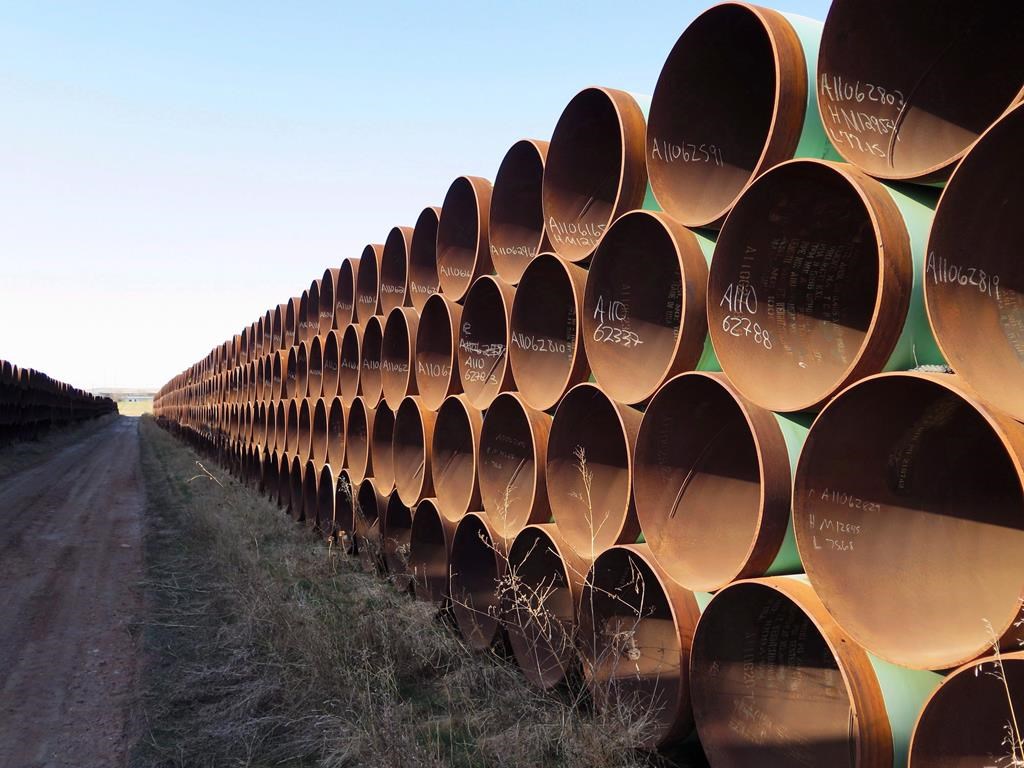
Alberta Premier Jason Kenney is calling for the federal government to impose economic sanctions against the United States in response to newly inaugurated U.S. President Joe Biden’s “gut punch” decision to tear up the permit for the Keystone XL oil pipeline expansion.
“As friends and allies of the United States, we are deeply disturbed that one of President Biden’s first actions in office has been to rescind the presidential permit for the Keystone XL pipeline border crossing. This is a gut punch for the Canadian and Alberta economies,” Kenney said at a news conference late Wednesday.
“Sadly, it is an insult directed at the United States’ most important ally and trading partner on Day 1 of a new administration.”
Kenney said he was upset the U.S. wouldn’t consult with Canada first before acting but saved his strongest criticisms for federal Liberals, whose statements in response to Biden’s actions Kenny characterized as too accepting.
“If the U.S. government refuses to open the door to a constructive and respectful dialogue about these issues, then it is clear that the government of Canada must impose meaningful trade and economic sanctions in response to defend our country’s economic interests,” he said.
The lack of a strong response sets a precedent that could allow other members of Biden’s government to call for other “retroactive” permit revocations for existing pipelines, Kenney said. Part of Keystone XL has been built but it is not complete, nor is it operating.
Prime Minister Justin Trudeau expressed disappointment at the news.
“While we welcome the President’s commitment to fight climate change, we are disappointed but acknowledge the President’s decision to fulfil his election campaign promise on Keystone XL,” he said in a brief statement that outlined previous efforts to make a case for the project to the incoming administration.
Trudeau will get the chance to express his displeasure personally as the White House says the two leaders are scheduled to speak on Friday. Trudeau will be the first foreign leader to speak with Biden since his inauguration.
Calgary-based TC Energy Corp. said Biden’s action overturns extensive regulatory reviews that found the pipeline would transport needed energy in an environmentally responsible way and bolster North American energy security.
It also warned the move will lead to the layoffs of thousands of union workers and comes despite the company’s commitments to use renewable energy to power the pipeline and forge equity partnerships with Indigenous communities.
The Biden decision was condemned by the Canadian Association of Petroleum Producers.
“This action is killing thousands of Canadian and American jobs at a time when both economies badly need private investment,” said CEO Tim McMillan in a statement.
Meanwhile, environmental groups applauded Biden’s move.
“Killing the Keystone XL pipeline once and for all is a clear indication that climate action is a priority for the White House,” said Dale Marshall, national climate program manager for Canada’s Environmental Defence.
“We should take heed when the biggest customer for Canada’s oil kills a pipeline that is already under construction. The Keystone XL pipeline never made sense for either the U.S. or Canada.”
RELATED: Biden’s first act: Orders on pandemic, climate, immigration
In contrast, Saskatchewan Premier Scott Moe said it’s “incredibly troubling” that TC Energy has suspended work on Keystone XL.
“Now is the time for our nations to strengthen our trading relationship, not erect further barriers to collaborative and sustainable development,” he said in a statement.
Federal Conservative Leader Erin O’Toole called the cancellation of the permit “devastating.”
“We need to get as many people back to work, in every part of Canada, in every sector, as quickly as possible. The loss of this important project only makes that harder,” he said.
The Business Council of Canada and the Progressive Contractors Association of Canada said in news releases they are disappointed.
“Pulling the plug on a major project, hours after taking office, is a rocky starting point for re-setting Canada/U.S. relations,” said PCAC president Paul de Jong.
The association, whose member companies employ thousands of Alberta and B.C. construction workers, said the pipeline would have generated as many as 60,000 direct and indirect jobs in Canada and the United States.
“Canadian oil will be an important source of North American energy for decades to come, and will play a critical role as Canada and the United States work together to transition to a low-carbon economy,” said Goldy Hyder, CEO of the business council.
TC Energy approved spending US$8 billion in the spring of 2020 to complete Keystone XL after the Alberta government agreed to invest about US$1.1 billion (C$1.5 billion) as equity and guarantee a US$4.2-billion project loan.
Alberta Premier Jason Kenney has said the province has about $1 billion at risk if the project is killed.
The 1,947-kilometre pipeline is designed to carry 830,000 barrels a day of crude oil from Hardisty, Alta., to Steele City, Neb. From there it would connect with the company’s existing facilities to reach the U.S. Gulf Coast – one of the world’s biggest oil refining hubs.
TC Energy announced a plan Sunday for the Keystone XL project to achieve net zero emissions by spurring an investment of over US$1.7 billion in communities along the Keystone XL footprint to create about 1.6 gigawatts of renewable electric capacity.
The Calgary-based company has also struck a deal with four labour unions to build the pipeline and has an agreement in place with five Indigenous tribes to take an ownership stake.
Some 200 kilometres of pipe have already been installed for the expansion, including across the Canada-U.S. border, and construction has begun on pump stations in Alberta and several U.S. states.
TC Energy said it will stop capitalizing costs, including interest during construction, effective Wednesday, and will evaluate the carrying value of its investment in the pipeline, net of project recoveries.
It says this will likely result in “substantive” mostly non-cash writedowns in its first-quarter financial results.
The company remains committed to growing earnings and dividends through its investments in critical energy infrastructure even without Keystone XL, said Francois Poirier, who took over as TC Energy CEO at the beginning of the year.
“Our base business continues to perform very well and, aside from Keystone XL, we are advancing $25 billion of secured capital projects along with a robust portfolio of other similarly high-quality opportunities under development,” Poirier said in a statement.
Biden was vice-president in 2015 when Barack Obama rejected Keystone XL for fear it would worsen climate change.
Then-U.S. president Trump approved it again in March 2019.




